Introducing the Center for Anti-Racism in Community Health at the University of Washington
Tongtan "Bert" Chantarat, Wendy Barrington
This month we welcome Dr. Wendy Barrington, the director of the newly minted Center for Anti-Racism in Community Health (ARCH) at the University of Washington (UW). Dr. Barrington is an epidemiologist and currently a jointly appointed Associate Professor in the department of Child, Family, and Population Health Nursing in the UW School of Nursing and the departments of Health Systems and Population Health and Epidemiology in the UW School of Public Health (SPH). She talks with us about her new center, its future work, and her vision for interdisciplinary anti-racism research.
Bert: Congratulations on your new role!
Wendy: Thank you! I cannot tell you how much excitement this opportunity brings me. What we are attempting to build is a new approach and structure at the UW for moving with intentionality, authenticity, and true partnership with those impacted by structural racism. It’s not easy work, but so meaningful to me and to others.
Bert: Tell us a little bit about ARCH. What are the core missions and your vision for ARCH?
Wendy: ARCH is the result of activism of students, staff, faculty, and community members who demanded a structure of accountability to address anti-Blackness and facilitate anti-racist transformation within the SPH and across the university.
Anti-Blackness in the U.S. is intrinsically tied to our legacies of settler colonialism. Therefore, we need to elevate the ways of knowing and being of ascendants of enslaved Africans and peoples indigenous to this land to understand the seminal processes of racialization via white supremacy and mechanisms of structural racism in this country. With that grounding, we need to understand how these processes have evolved to not only include all communities of color, but communities that coalesce around dimensions of identity that exist outside the accepted social norms of white supremacy. With that knowledge, the center seeks to partner with all communities to interrogate and disrupt manifestations of racism and racialization that perpetuate health disparities.
Going back to our origins as a center, we are first focusing on addressing institutionalized racism within the SPH and the UW more broadly as well as partnering with organizations like health departments and health systems who want to do similar work themselves. We also recognize that doing this work—which I will call a labor of love—requires intersectional approaches to co-create solutions for disruption and repair. And, most importantly, it requires working with communities affected by structural racism, as a way to hold a mirror to ourselves as institutions and actors within institutions to reveal not only what we look like, but to see what we have done, what we are actually doing, and what we need to change.
Anti-racism Sister Center Directors, April 2022.
Clockwise from top left: Dr. Sharrelle Barber, Dr. Wendy Barrington, Dr. Rachel Hardeman, Dr. Melody Goodman. Not pictured: Dr. Chandra Ford.
Bert: Can you share with us some examples of the initiatives that ARCH will engage/is engaging in? Any projects that you are excited to get off the ground?
Wendy: Absolutely. One of the ARCH Center’s living objectives is to create space and supportive conditions to develop and nurture anti-racist scholars and researchers. One strategy for shifting institutional norms is to elevate Black and Indigenous epistemologies and experience within the academy. With a community partner, I co-designed and co-implemented a new course that focuses on teaching practitioners the knowledge and skills for effective community collaboration within the context of advancing Black health and well-being. The overall goal of this course is to develop approaches to build community and organizational capacity, rectify power asymmetries, and institutionalize supportive practices for sustainment. I’m super excited that this year, my community partner is the instructor of record and continues her role as a member of the UW School of Nursing faculty. We are taking down the walls of the academy and inviting community inside to co-generate and co-disseminate knowledge for the public good. We are a public institution after all.
Another initiative that I’m excited to share with you is the ongoing creation of a Community Anti-Racist Accountability Tool (CARAT). In early March 2020, Public Health — Seattle & King County (PHSKC) convened representatives from stakeholder organizations and communities disproportionately burdened by the COVID-19 pandemic as thought partners for how to accelerate the use of the recommended and required community mitigation strategies. In June 2020, King County declared racism as a public health crisis. This group explicitly re-oriented to center the voice and leadership of communities of color and became known as the Pandemic and Racism Community Advisory Group (PARCAG).
As the group worked together in this space, we thought about how to document the ways institutions implemented community recommendations and the outcomes that followed. The idea to develop a tool came to be, and as a group, we are still working on what this tool should look like and how it could help with demonstrating accountability and transparency from institutions.
The ARCH Center will support the PARCAG/PHSKC relationship by co-designing and conducting a pilot-study to demonstrate how institutional advisory groups can be an active part of institutional change and involved in holding institutions accountable for disrupting white supremacy practices.
Bert: What drew you to this line of work? What motivates you?
Wendy: I have always had a social-justice orientation to my work and I see that partly stemming from my own identity. I am now in a position to utilize my privilege to dismantle racist institutional structures with those who are most impacted by its adverse effects. For me, I define an institutional policy or practice as racist if it disproportionately harms those who are racialized by white supremacy. With the ARCH Center, we now have the ability to facilitate efforts to reduce disparities while nurturing and supporting the next generation of anti-racist scholars, researchers, and activists. My motivation has and continues to be the people I am in community with in doing this work—academic and community colleagues as well as students. Their wisdom and ways of moving in the world are incredible and inspiring—I learn so much every day! I also absolutely find joy in mirroring and supporting the strengths and brilliance of these folks. So much love.
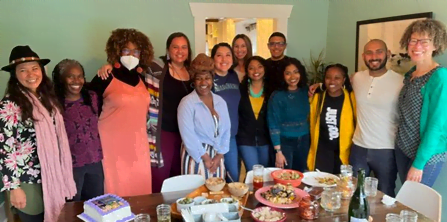
ARCH Center End-of-Year Student Celebration, June 2022. From left: Dr. Michelle Johnson-Jennings (Choctaw), Ahoua Kone, Sammie Inevil, Snowy Johnson (Salish, Crow),
Michelle Thomas, Tee Benally (Diné), Caitlin Maloney, Ramya Kumar, Jonathan Lara, Varuna Ravi, Tina Mensa-Kwao, Kunal Patel, and Dr. Wendy Barrington.
Bert: As evidenced by IAPHS recent annual meeting, more population health scholars are working across disciplines to focus on anti-racism research. What does “anti-racism” mean to you? What do you see as the best ways to effectively engage in anti-racism research?
Wendy: To me, anti-racism is the intentional effort to break the cycles of racialization and oppression that are inherent in our culture. To be anti-racist takes deliberate action. It is not enough to simply “not be racist”; we must actively work to disrupt structural racism through policy and practice change, advocacy, activism, and research that is accessible to all members of society. These approaches will benefit all members of society—this is not a “zero-sum game.” Meaning, thinking about and doing things differently doesn’t mean we need to lose. Quite the opposite, in fact. And it takes trust, relationship, and time. Things that have continued to be devalued by white supremacy culture.
To effectively engage in anti-racism research, we must first raise racial consciousness and embrace uncertainty. We are calling to co-develop conceptualizations and facilitate team and public science, which is the antithesis of what researchers across disciplines have been taught. We have a lot of learning and UN-learning to do. In order to take part in anti-racist work, we have to understand how processes of racialization operate within social contexts and how we can achieve critical mass to enact change. Additionally, we must expand traditional research to include community-based collaborative efforts in which the expertise of the affected community is valued and included in the decision-making across the scientific process.
Bert: What is the role of interdisciplinary research in dismantling racism?
Wendy: Anti-racism and health equity cannot be achieved by one entity or one discipline. It requires the lens and efforts of all disciplines and fields. Everything relates to health. Interdisciplinary research facilitates greater collaboration by providing each discipline a voice on how to effectively remove the barriers that allow racism to persist in our health and sociopolitical systems.
I have had the opportunity to work with leaders across different schools and colleges at UW to submit the UW Faculty Institutional Recruitment for Sustainable Transformation (FIRST) grant. This NIH research grant is focused on shifting academic culture and fostering inclusive excellence by identifying strategies for disrupting white supremacy culture norms in policies and practices. We are implementing and evaluating these strategies in the Schools of Public Health, Nursing, Medicine, Social Work, and the College of Engineering. These strategies that each unit creates may slightly differ because of differences in discipline and context. And that affords more opportunities to learn. We are really excited about this true interdisciplinary approach to disrupting institutionalized racism.
Bert: ARCH is among a few research hubs specifically dedicated to anti-racism research in the country. I happen to work at one of these centers and love to learn from others doing similar work. What kind of collaborations do you think/plan to engage with other centers?
Wendy: I have been in ongoing conversations with the directors at our sister centers and I am excited for what’s to come! It is so inspiring to be in community with like-minded leaders and learning from each other. In the future, I am hoping to organize a symposium at UW to bring together all of these impactful voices to inspire the next generation of anti-racist scholars.
Actually, I’m just going to speak this into the universe—I would love to be part of a panel of anti-racism center directors at an annual meeting to discuss and plan what our national agenda for anti-racism scholarship looks like.
Bert: Fun question: It’s not raining in Seattle, and you have no paper or grant deadlines. What will you be doing in a non-pandemic time?
Wendy: One of my favorite things to do when there isn’t a grant or project deadline is spending time in my garden tending to my vegetables and chickens. I also love spending time with friends and family at one of my favorite restaurants in Seattle, Fat’s Chicken and Waffles.
Bert: We are so grateful for your leadership in anti-racism research. All of us at IAPHS are excited to see what’s next for the ARCH Center!
Celebrating Dr. Wendy Barrington’s one-year anniversary as Director of the ARCH Center, August 1, 2022.
ARCHers from left: Jillese Bush, Ramya Kumar, Dr. Wendy Barrington, Kisna Prado, Shanise Owens, Tina Mensa-Kwao, and Sammie Inevil.

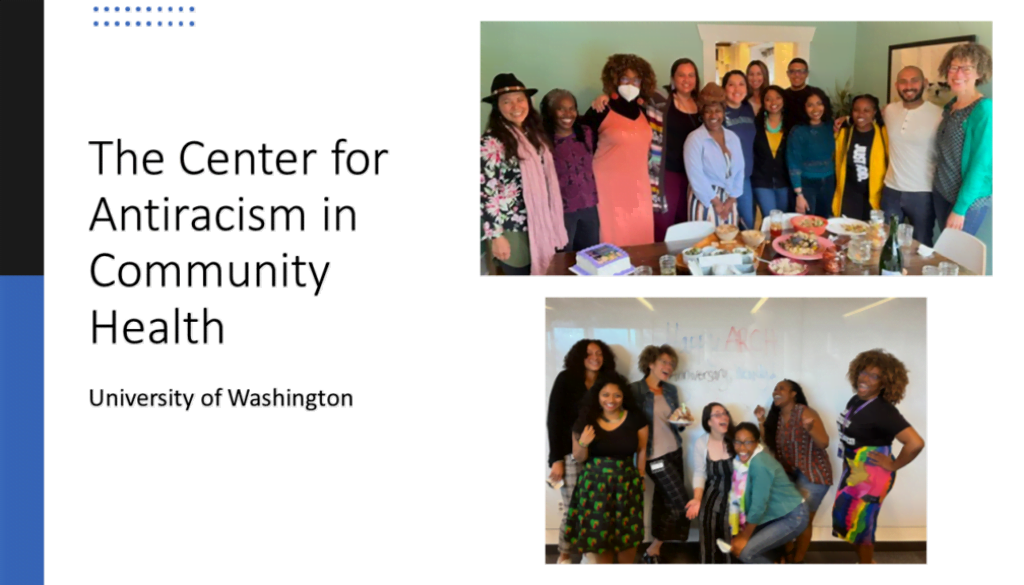
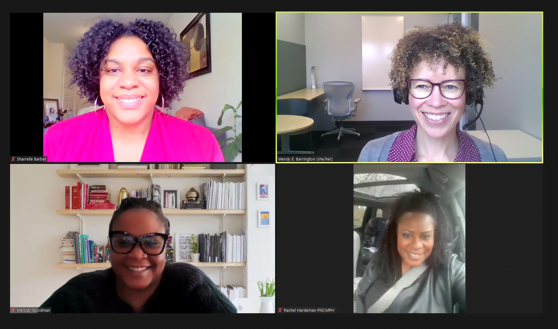
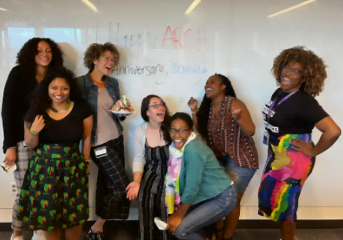
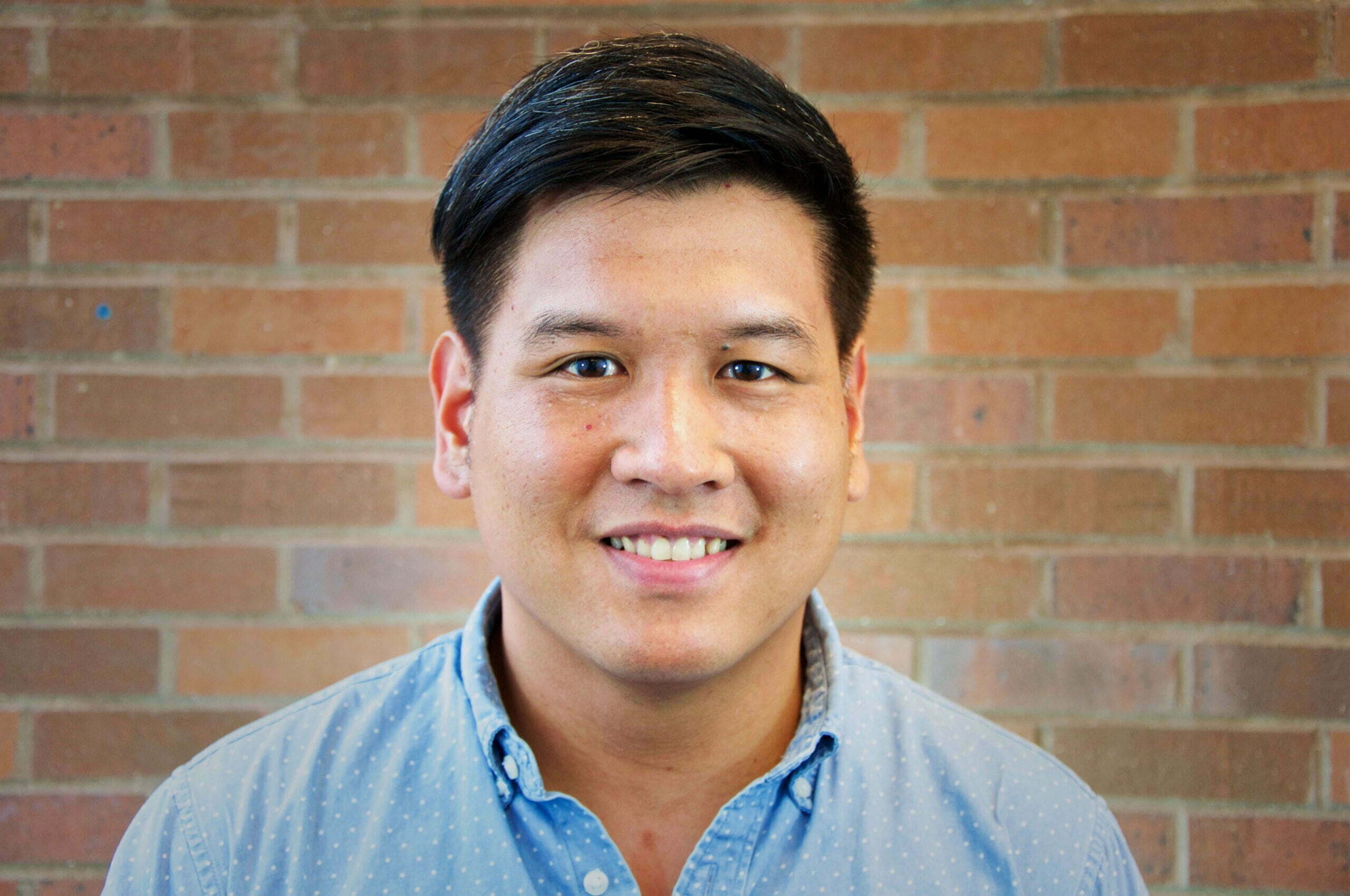
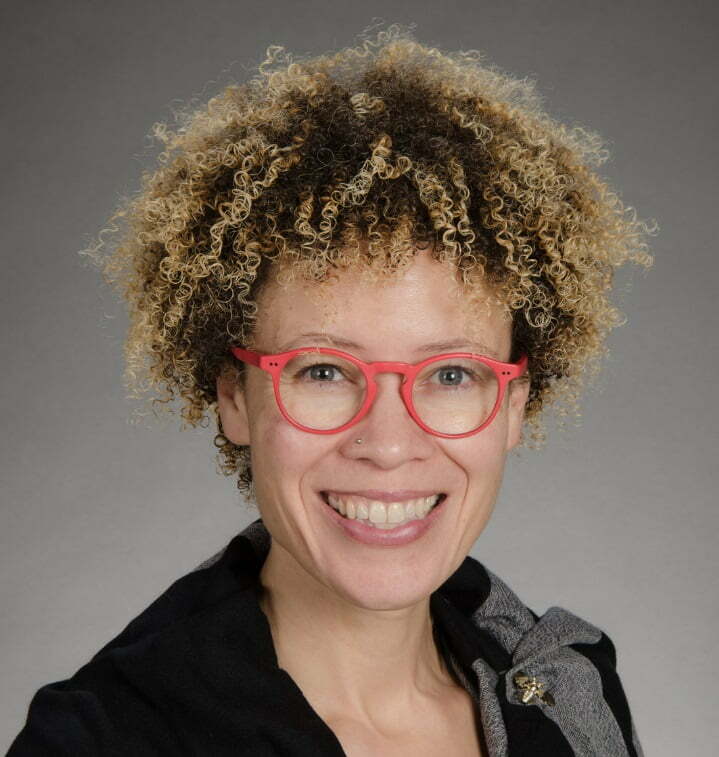


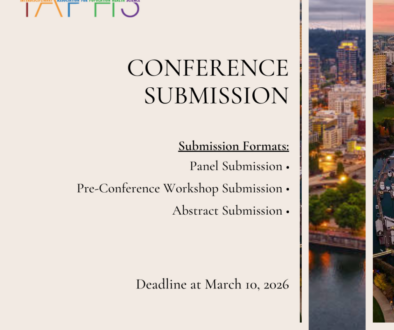
All comments will be reviewed and posted if substantive and of general interest to IAPHS readers.